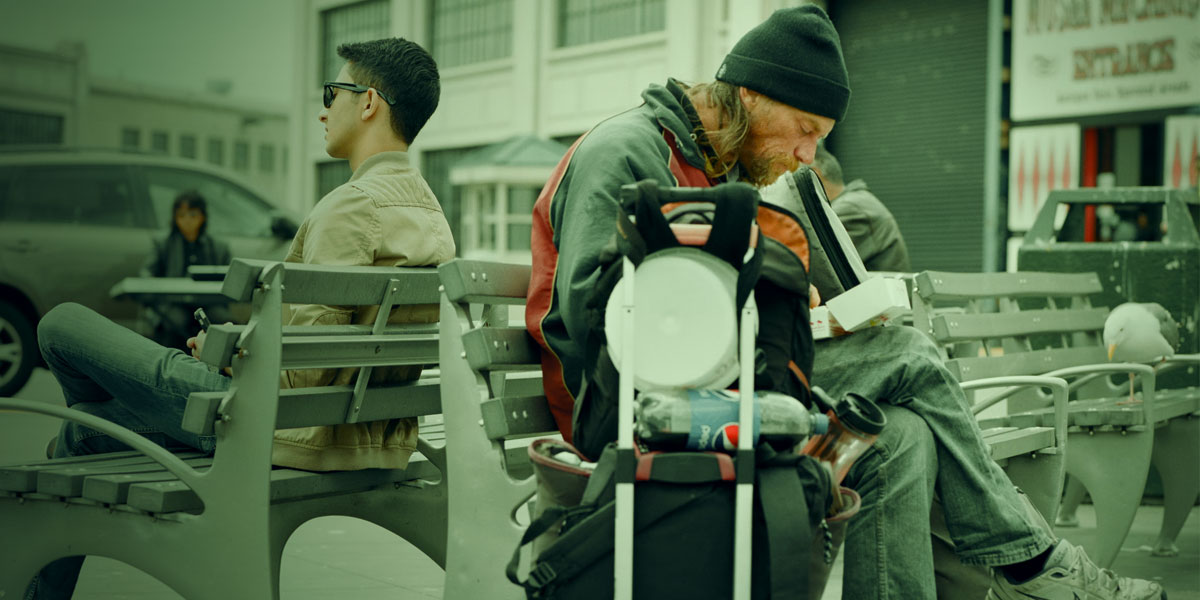San Francisco is one of the most beautiful and affluent cities in the world. And yet San Francisco, Los Angeles, and Seattle, have significant and growing homeless populations.
Anyone interested in the ills of the West Coast should read Michael Shellenberger’s book “San Fransicko: Why Progressives Ruin Cities.” His answer: “much of what I and other progressives had believed about cities, crime, and homelessness was all wrong.”
First some background on the author. Mr. Shellenberger has mostly written on environmental issues. He was a Time magazine “Hero of the Environment,” and founded the Breakthrough Institute and Environmental Progress. His most recent book, “Apocalypse Never,” argued against climate change as an existential threat.
How specifically do progressives destroy cities? For one, by tolerating lawbreaking and reducing or eliminating penalties for minor criminal offenses. Beyond this, progressives “prefer homelessness and incarceration to involuntary hospitalization for the mentally ill and addicted” and ignore the failures of “harm reduction” for drug addiction. They further object to temporary shelters or placing conditions on access to housing. And finally, they accuse anyone disagreeing with them of hating the poor and minorities.
The closure military bases after the Cold War ended factors in. The exit of military families ended party competition; as Mr. Shellenberger notes, California voted for a Democrat for president just once between 1948 and 1988. Liberal dominance in Sacramento precludes any state check on cities.
Perhaps the most fascinating element is the role of non-profit organizations. Proponents of voluntary society and minimal government, like myself, envision a major role for non-profits. Charities can provide virtually all welfare state services, probably more effectively than government. How then are non-profits part of the problem?
Many influential progressives work for non-profits as opposed to holding elected office. Some non-profits will have bad ideas, just as some businesses do. But businesses with bad ideas lose money. A deli which tried selling mud sandwiches would quickly learn they need to adjust or go out of business.
But as Mr. Shellenberger details, the non-profits never have to recognize their mistakes or bear any consequences. They receive funding from liberal foundations and government contracts to administer homelessness programs. The perverse logic of the public sector explains some of this; government failure often produces budget increases. The progressive non-profits also skillfully portray all dissenters as hating the homeless.
The book also challenges libertarians on drug legalization. Libertarians believe that the harm from drug prohibition outweighs any potential benefits. Yet de facto legalization of hard drugs in San Francisco has not gone well, with staggering numbers of overdoses and poisonings.
Let’s unpack this starting with the mentally ill, who comprise a sizable portion of San Francisco’s homeless. I agree that “no sane psychiatrist believes that enabling and subsidizing people with schizophrenia, depression and anxiety disorders to use fentanyl and meth is good medicine.” Beyond the mentally ill, I view the opioid epidemic as a tragedy: America offers historically unparalleled wealth and opportunities, and yet too many Americans find life not worth living. That is a topic for another day.
Would jailing drug abusers improve their lives? I agree with Mr. Shellenberger that people rarely address drug addiction until ready to change. But he argues that the prospect of prison often provides such motivation.
Mr. Shellenberger ironically notes how progressives so badly fail the poor and powerless, whom they care so much about. I would offer a different take. Progressive planners intent on solving all the world’s problems do not truly care about real people. They care about their grand plans, which may or may not help living, breathing humans. I see this as behind the frequently documented friction between people helping the homeless and the progressive non-profits.
California leads the nation in many trends, for better or worse. Let’s hope homeless encampments are not one. Liberals have long celebrated good intentions over results. “San Fransicko” details the consequences of decades of reckless disregard of the consequences of well-intentioned progressives.
Daniel Sutter is the Charles G. Koch Professor of Economics with the Manuel H. Johnson Center for Political Economy at Troy University and host of Econversations on TrojanVision. The opinions expressed in this column are the author’s and do not necessarily reflect the views of Troy University.













